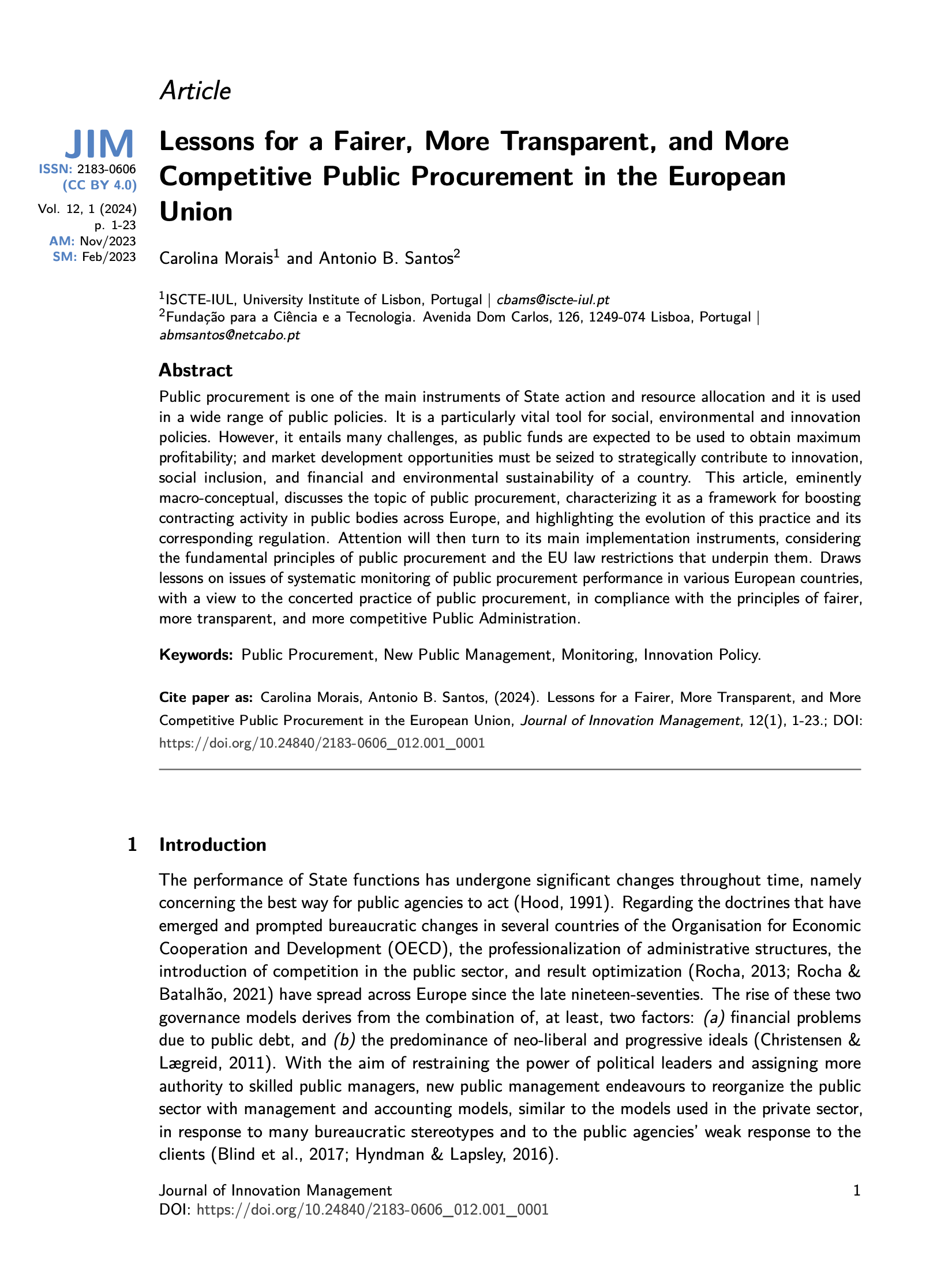Lessons for a Fairer, More Transparent, and More Competitive Public Procurement in the European Union
Main Article Content
Abstract
Public procurement is one of the main instruments of State action and resource allocation and it is used in a wide range of public policies. It is a particularly vital tool for social, environmental and innovation policies. However, it entails many challenges, as public funds are expected to be used to obtain maximum profitability; and market development opportunities must be seized to strategically contribute to innovation, social inclusion, and financial and environmental sustainability of a country. This article, eminently macro-conceptual, discusses the topic of public procurement, characterizing it as a framework for boosting contracting activity in public bodies across Europe, and highlighting the evolution of this practice and its corresponding regulation. Attention will then turn to its main implementation instruments, considering the fundamental principles of public procurement and the EU law restrictions that underpin them. Draws lessons on issues of systematic monitoring of public procurement performance in various European countries, with a view to the concerted practice of public procurement, in compliance with the principles of fairer, more transparent, and more competitive Public Administration.
Article Details
Authors who publish with this journal agree to the following terms:
- Authors retain copyright and grant the journal right of first publication with the work simultaneously licensed under a Creative Commons Attribution License that allows others to share the work with an acknowledgement of the work's authorship and initial publication in this journal.
- Authors are able to enter into separate, additional contractual arrangements for the non-exclusive distribution of the journal's published version of the work (e.g., post it to an institutional repository or publish it in a book), with an acknowledgement of its initial publication in this journal.
- Authors are permitted and encouraged to post their work online (e.g., in institutional repositories or on their website) prior to and during the submission process, as it can lead to productive exchanges, as well as earlier and greater citation of published work (See The Effect of Open Access).

